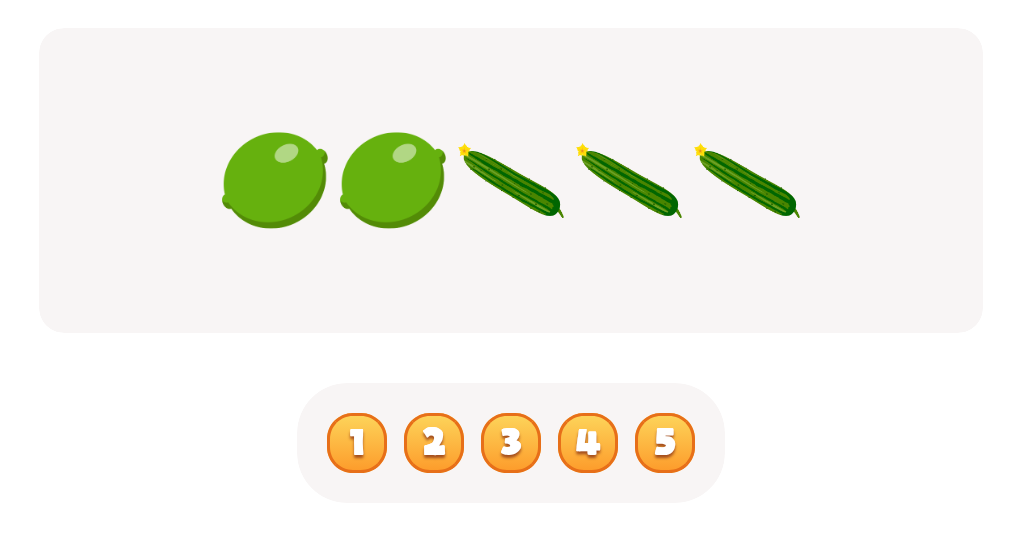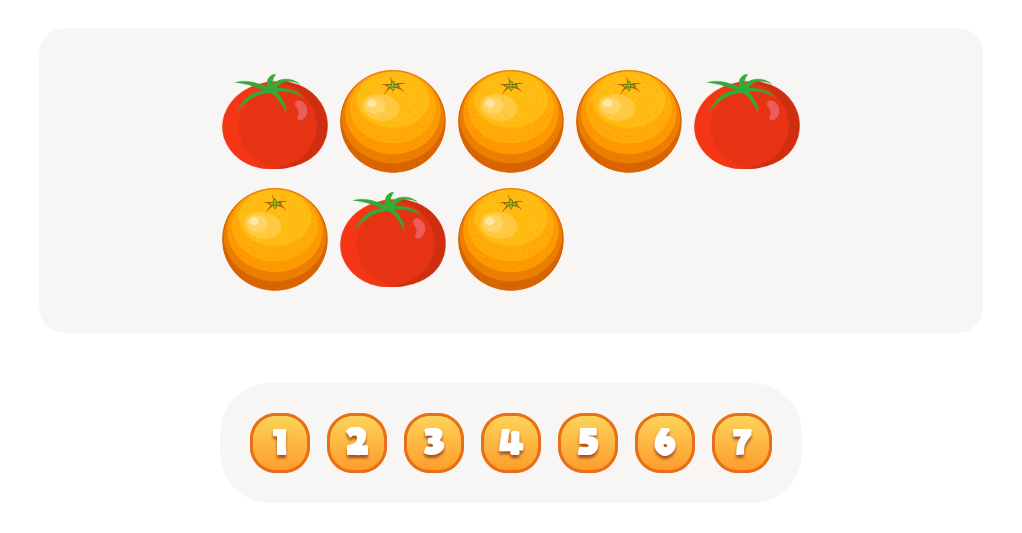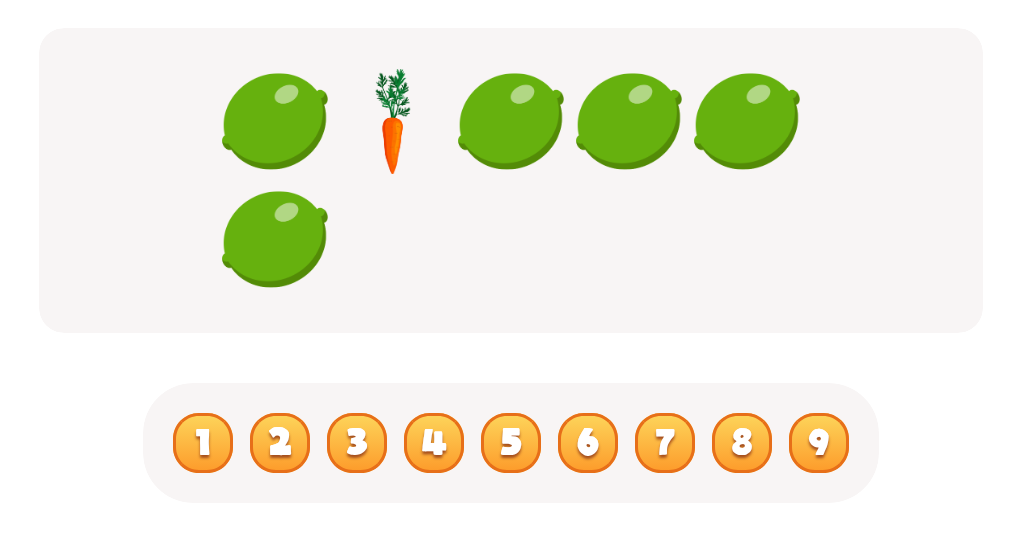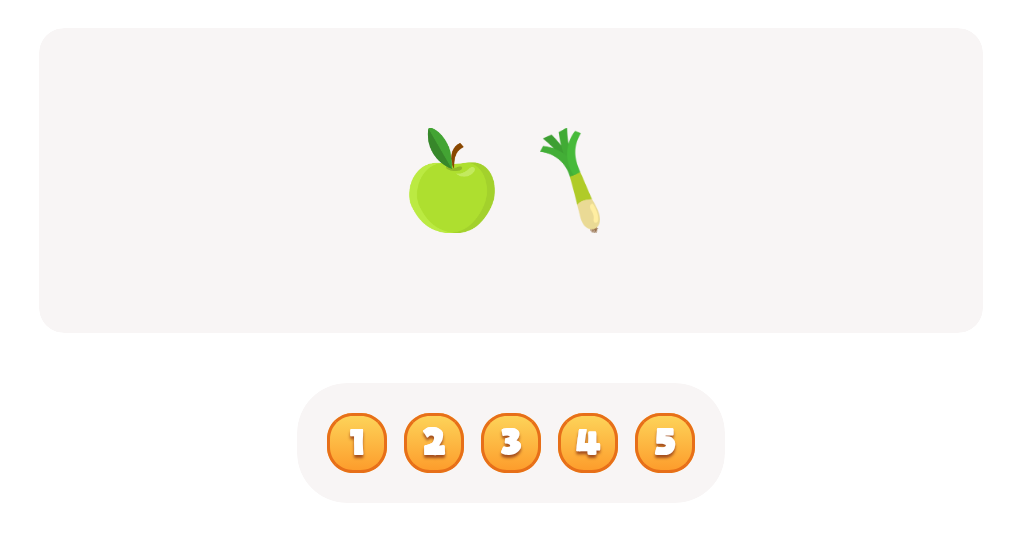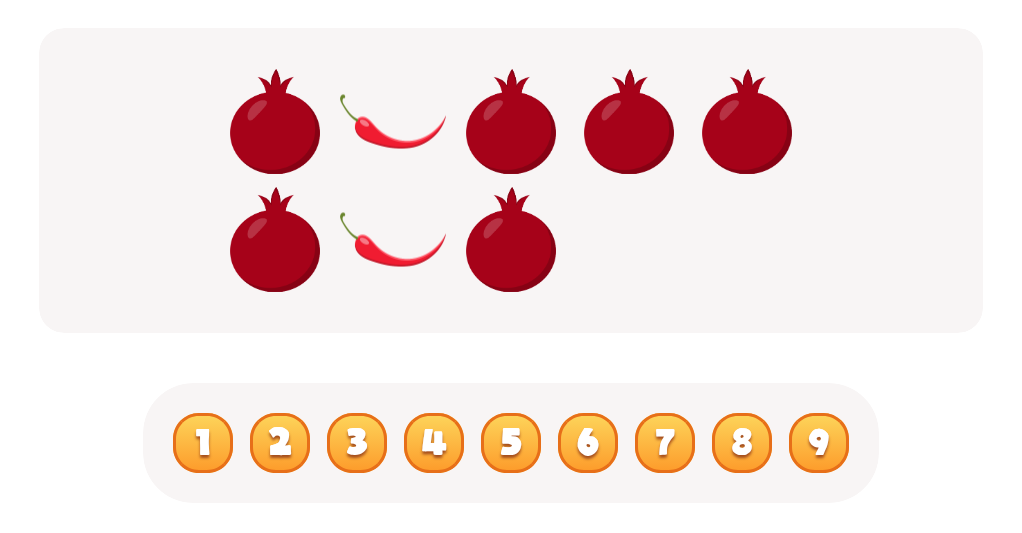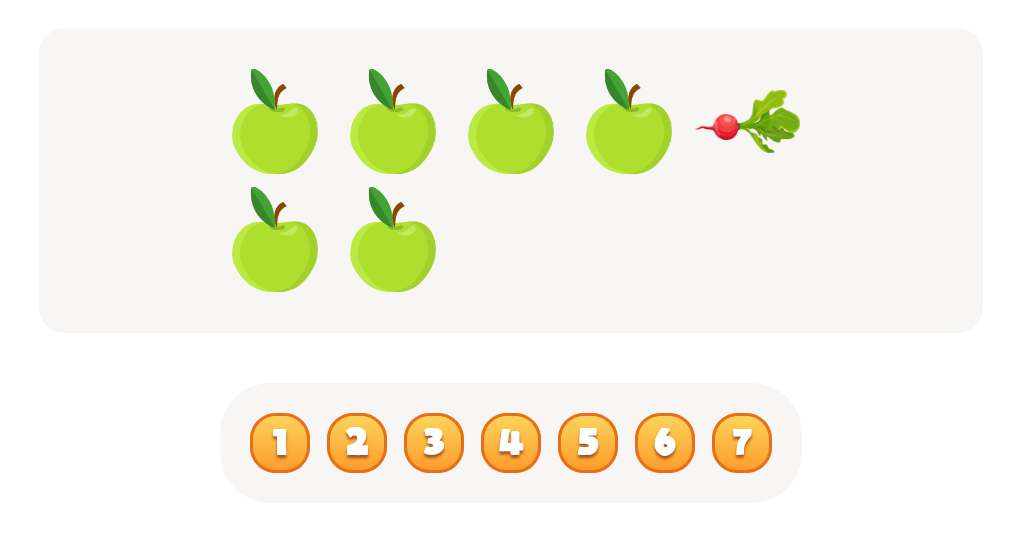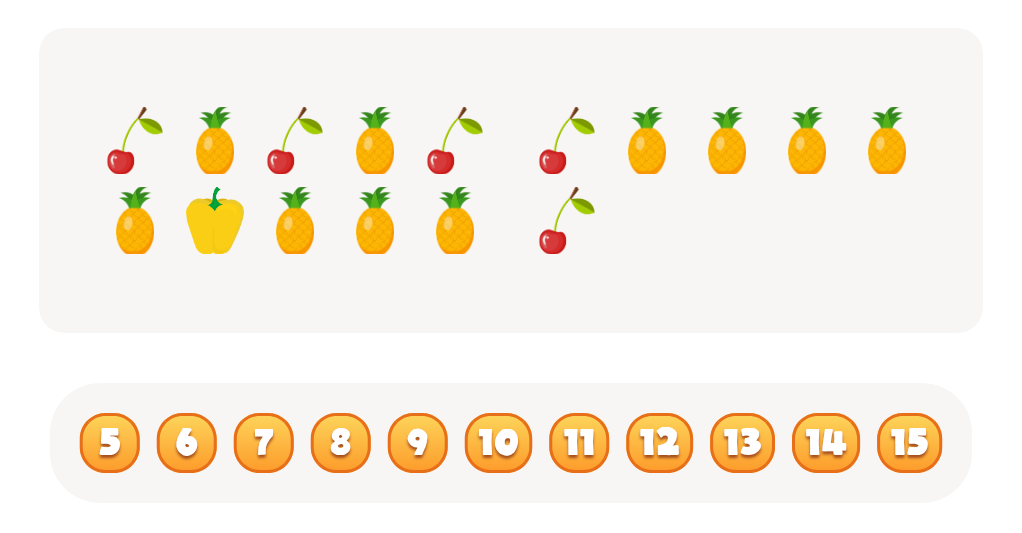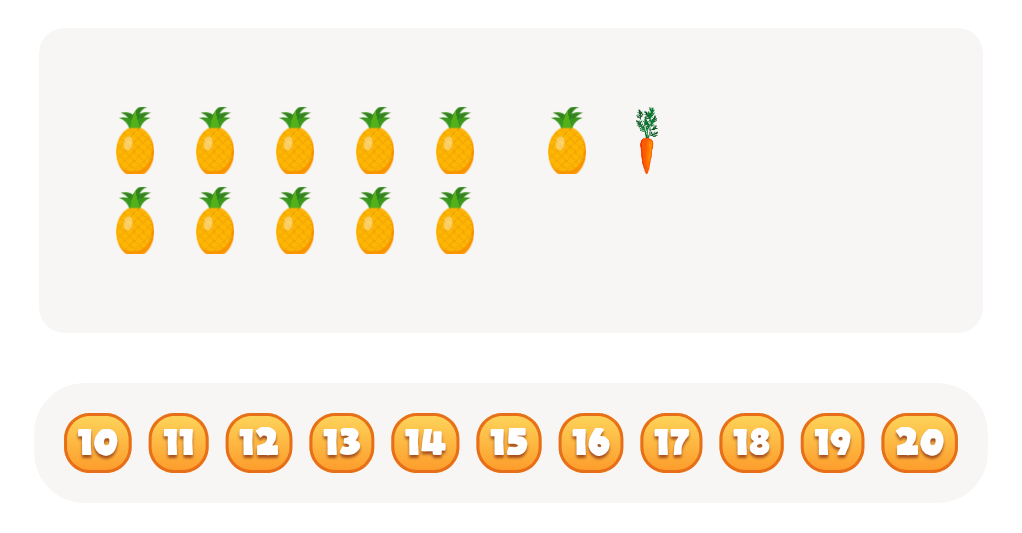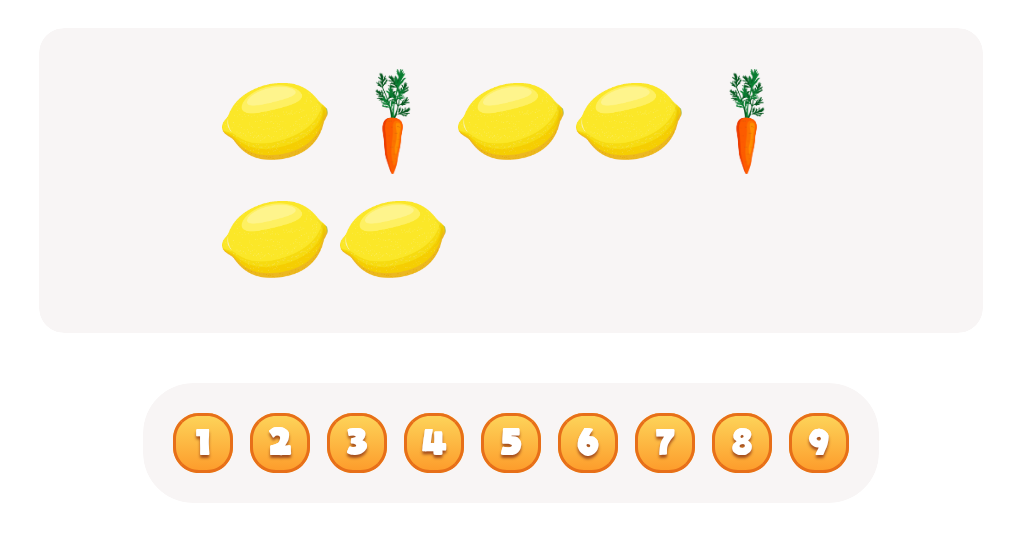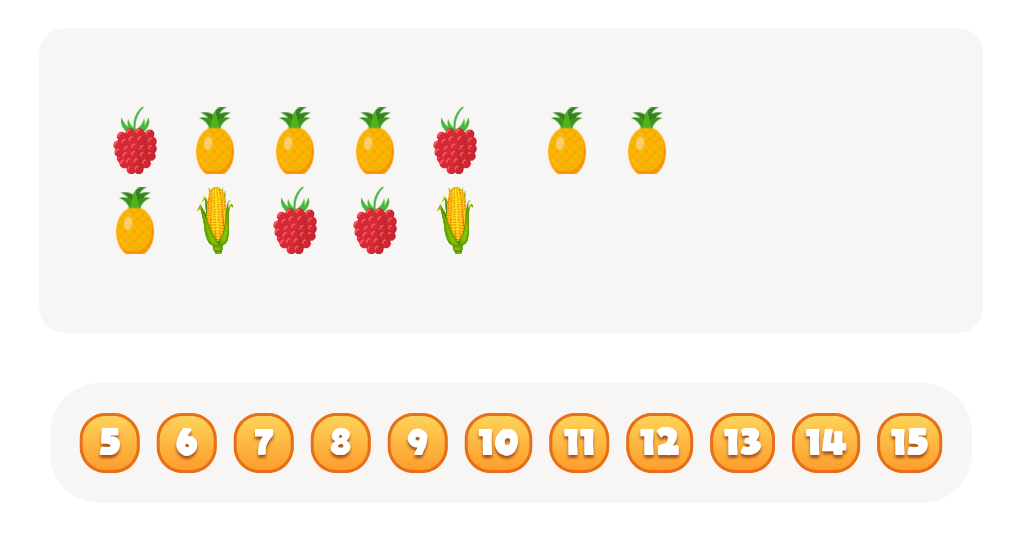Learning about ecosystems Plants and Animals Worksheets for Ages 3-9
4 filtered results
-
From - To
Dive into the fascinating world of nature with our "Learning about Ecosystems: Plants and Animals" worksheets, designed for children aged 3-9! These engaging and educational printables cover a broad range of topics about various ecosystems, helping kids understand the relationship between plants, animals, and their environments. Tailored to foster curiosity and discovery, our worksheets are perfect for youngsters eager to explore the world around them. Through colorful visuals, fun activities, and simple explanations, children will grasp complex ecological concepts, making learning both enjoyable and meaningful. Download now to encourage your child's love for science and nature!


Pollinator Positions Worksheet
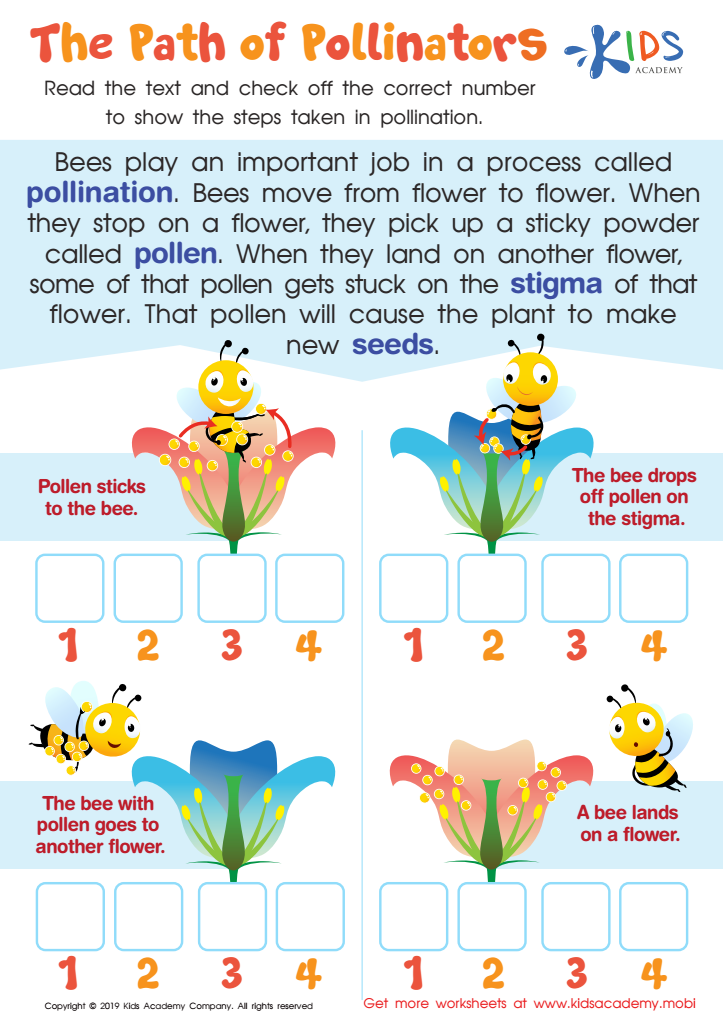

The Path of Pollinators Worksheet
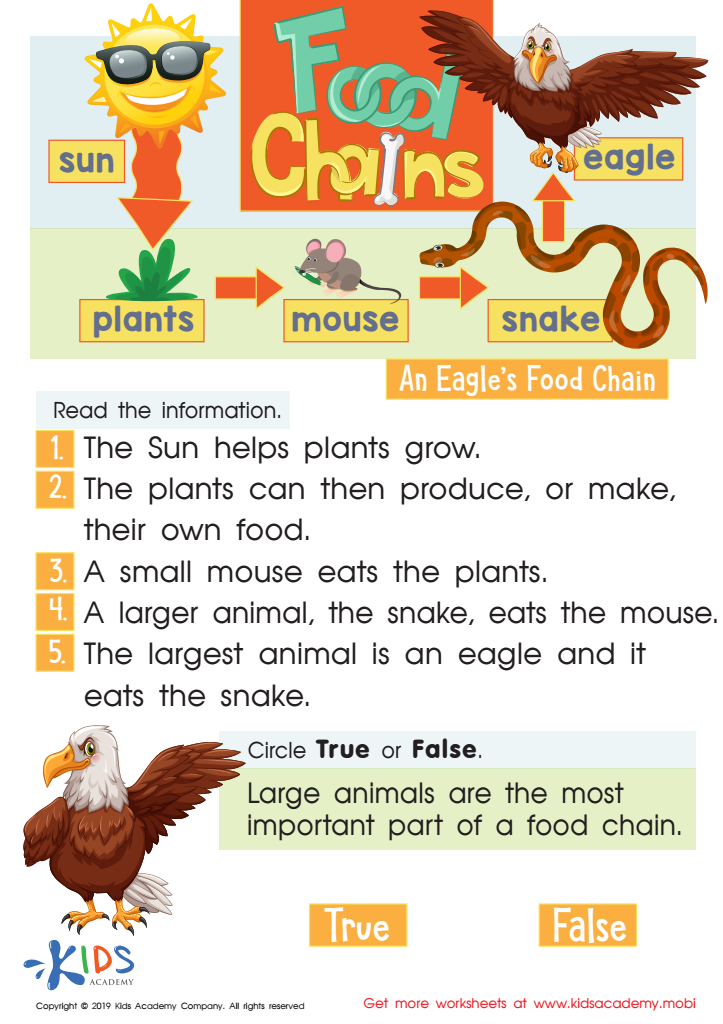

Food Chains Worksheet
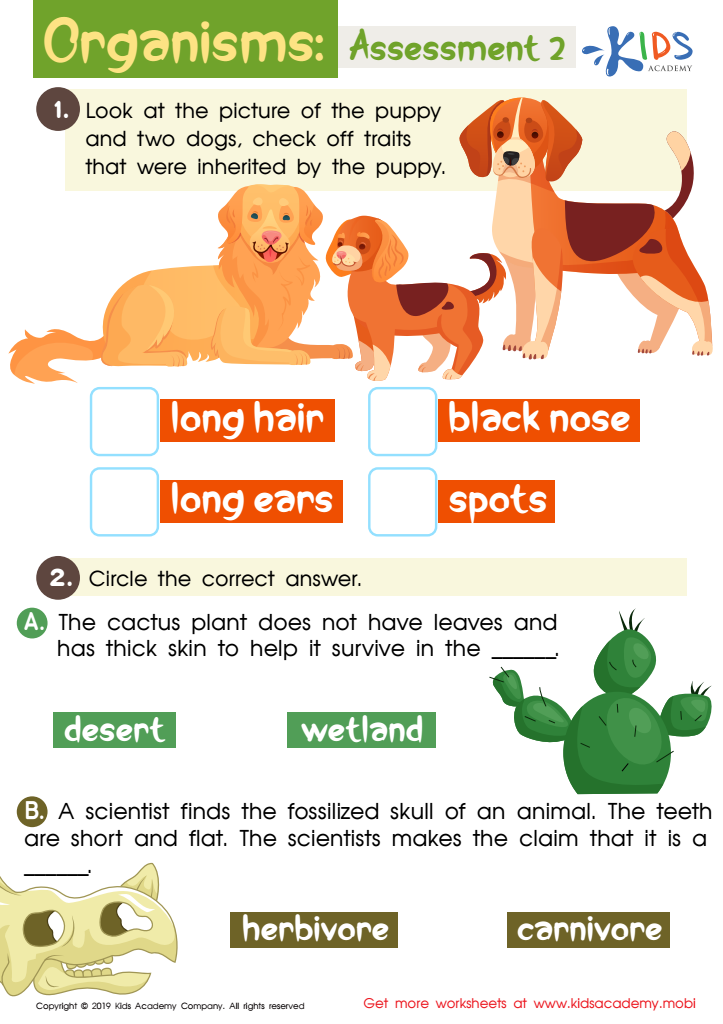

Organisms: Assessment 2 Worksheet
Learning about ecosystems, plants, and animals is crucial for children aged 3-9 as it builds a foundational understanding of the natural world, which is essential for both their intellectual development and fostering a sense of environmental stewardship. At this young age, children are naturally curious and begin forming connections with the world around them. Introducing them to the concepts of ecosystems and the interdependence between plants, animals, and their habitats helps stimulate their cognitive abilities and instills a sense of wonder and respect for nature.
For parents and teachers, fostering this knowledge supports educational benchmarks in science literacy. It encourages observational skills, critical thinking, and introduces basic scientific principles in an engaging and accessible manner. Environmental education promotes empathy and accountability from an early age, potentially leading to environmentally conscious behaviors that can have lasting impacts as children grow.
Moreover, learning about ecosystems can enhance language development, mathematical reasoning, and social skills through collaborative learning activities like gardening, nature walks, and classroom projects. Hands-on experiences enable children to better retain information and become more enthusiastic about learning. Ultimately, educating young children about ecosystems creates more informed, responsible, and caring future citizens equipped to tackle environmental challenges. It's an investment in their understanding, wellbeing, and the wellbeing of our planet.
 Assign to My Students
Assign to My Students
